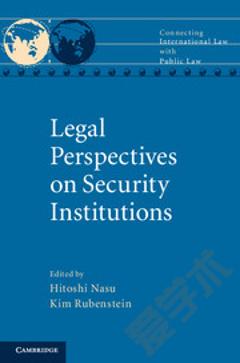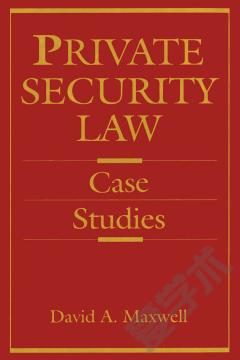Legal Perspectives on Security Institutions
Introduction: the expanded conception of security and institutions Hitoshi Nasu and Kim Rubenstein Part I. Security and Institutional Evolution: 1. Conscious and unconscious security responses Alexandra Walker 2. 'You cannot hold two watermelons in one hand': gender justice and anti-state local security institutions in Pakistan and Afghanistan Bina D'Costa 3. Institutional competence and the Common Foreign and Security Policy of the European Union Anne McNaughton 4. Building international maritime security institutions: public and private initiatives Chie Kojima Part II. Security Institutions and the Rule of Law: 5. General principles of law and a source-based approach to the regulation of international security institutions Imogen Saunders 6. The United Nations Security Council's legislative phase and the rise of emergency international law-making Anna Hood 7. Institutional evolution in Africa and the 'peacekeeping institution' Hitoshi Nasu 8. Security and the law in international and domestic institutions: lessons from Israel's border security Solon Solomon Part III. Security Institutions and Legitimacy: 9. The evolution of the nuclear non-proliferation regime: the International Atomic Energy Agency and its legitimacy Kalman A. Robertson 10. The World Health Organization, global health security, and international law Adam Kamradt-Scott 11. The institutionalisation of dispute settlements in Southeast Asia: the legitimacy of the Association of Southeast Asian Nations in de-securitising trade and territorial disputes See Seng Tan Part IV. Security Institutions and Regime Collision: 12. The Food and Agricultural Organization and food security in the context of international intellectual property rights protection Dilan Thampapillai 13. Rice is life: regional food security, trade rules and the ASEAN Plus Three Emergency Rice Reserve Michael Ewing-Chow, Melanie Vilarasau-Slade and Liu Gehuan 14. Legal challenges to cyber security institutions Ottavio Quirico 15. Concluding remarks Thomas Pogge.
{{comment.content}}








 京公网安备 11010802027623号
京公网安备 11010802027623号